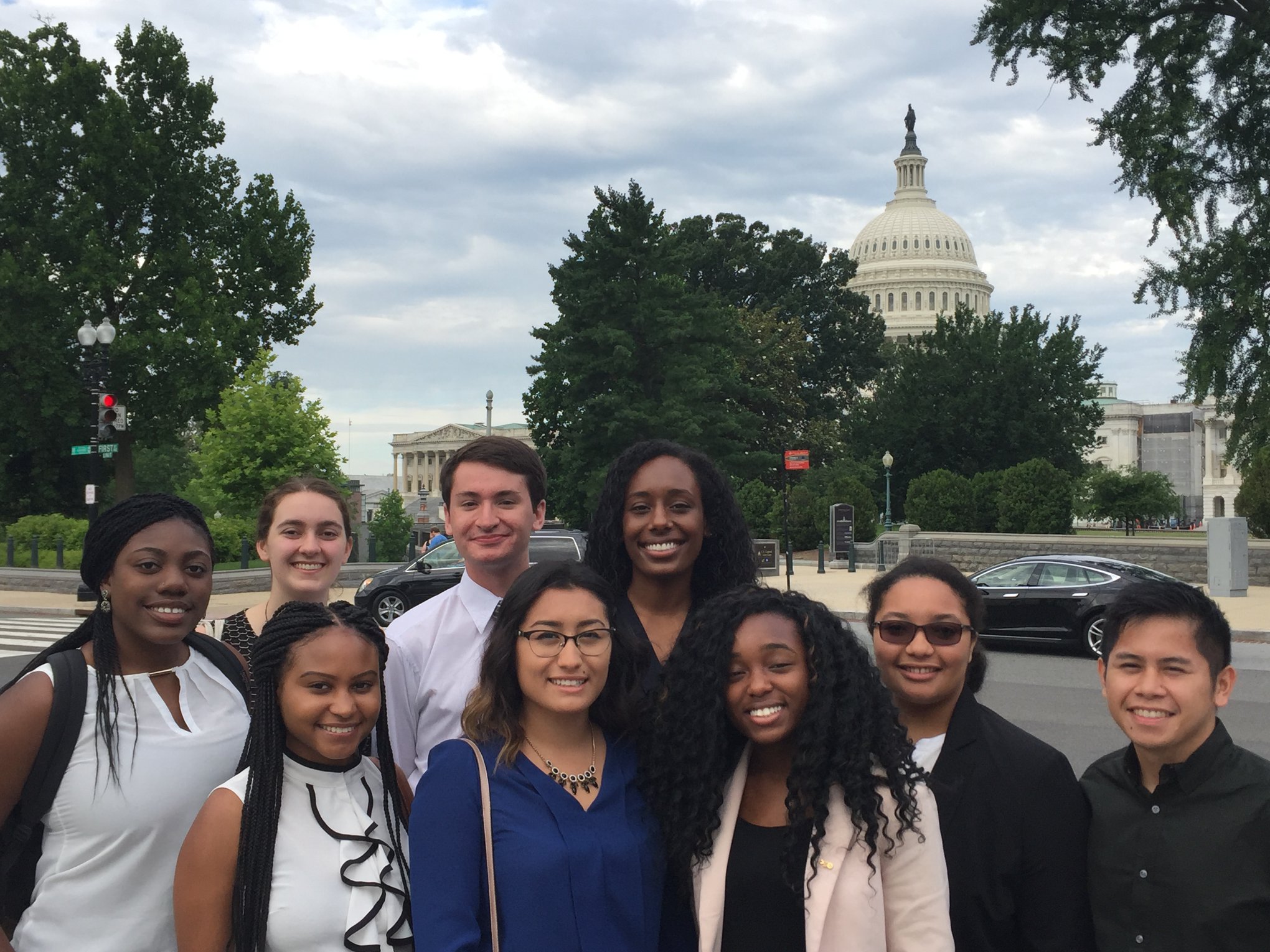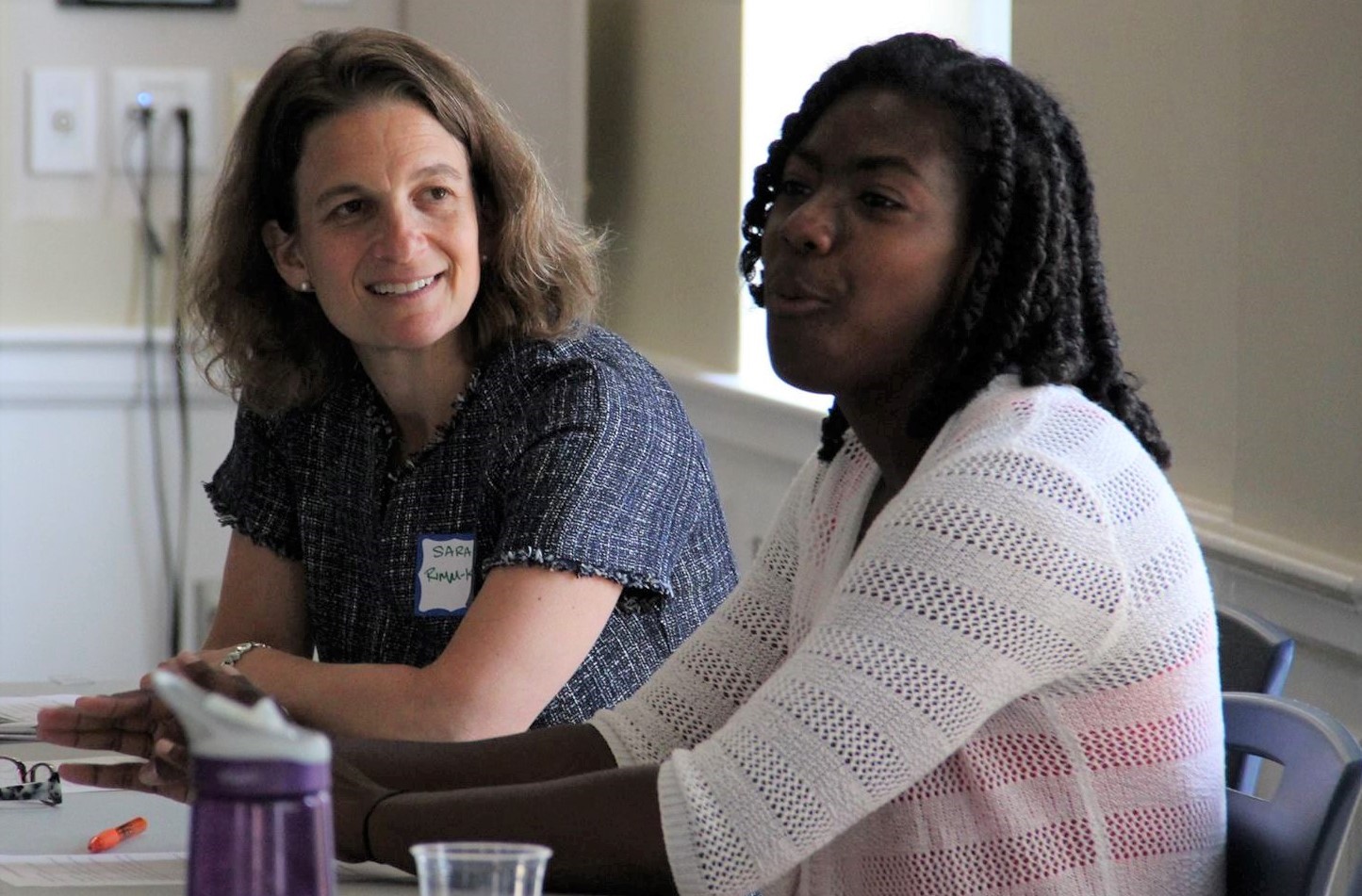
Since 2004, the Institute of Education Sciences has funded predoctoral training programs to increase the number of well-trained PhD students who are prepared to conduct rigorous and relevant education research. In addition to providing training to doctoral students, all IES-funded predoctoral programs are encouraged to help broaden participation in the education sciences as part of their leadership activities. In this guest blog post, the leadership team of the University of Virginia predoctoral training program discusses their continuing efforts to create diverse pathways for students interested in education research.
In 2008, the IES-funded Virginia Education Science Training (VEST) Program began the Summer Undergraduate Research Program (SURP) with the goal of recruiting more students from traditionally marginalized groups into education science research. Each year, 8–10 students from around the United States traveled to receive faculty mentorship in independent research at the University of Virginia. In doing so, they experienced facilitated opportunities to develop new research skills and reflect about their own identities as scholars and students of color, first generation college students and/or students from families with low income. They became active members of research groups, visited IES program officers in Washington, DC, and presented their own research at the Leadership Alliance National Symposium.
 Quite fortuitously, at an IES principal investigator meeting, we connected with the leadership of the IES-funded Research Institute for Scholars of Equity (RISE) program taking place at North Carolina Central University (NCCU). As a result, for four years, we collaborated with RISE leadership to host two-day RISE fellow visits to UVA. During these visits RISE fellows shared their projects and ideas with VEST fellows and faculty. The RISE and SURP fellows also mingled and attended workshops on graduate school admissions.
Quite fortuitously, at an IES principal investigator meeting, we connected with the leadership of the IES-funded Research Institute for Scholars of Equity (RISE) program taking place at North Carolina Central University (NCCU). As a result, for four years, we collaborated with RISE leadership to host two-day RISE fellow visits to UVA. During these visits RISE fellows shared their projects and ideas with VEST fellows and faculty. The RISE and SURP fellows also mingled and attended workshops on graduate school admissions.
We had three goals for these efforts:
- Provide IES pre-doctoral fellows with the opportunity to apply leadership skills to working with undergraduates
- Increase the diversity of education scientists
- Increase the diversity of our IES-sponsored PhD program
Enter COVID. In 2020, bringing students to UVA for the summer wasn’t feasible or wise. Instead, we reflected on our past successful experiences with NCCU and realized we could improve the quality of student experiences if we also worked closely with faculty at other universities. To start, we engaged with Virginia State University (VSU) and Norfolk State University (NSU), two Virginia HBCUs, to create the Open Doors Program.
Initially, eight faculty and administrators from NSU and VSU met with the UVA team, which included a post-doctoral fellow and a PhD student who coordinated discussions, helped design the curriculum, and built an Open Doors handbook. The design team built a program in which 12 rising juniors at NSU and VSU would:
- Engage in the research and writing process that will lead to a research product and presentation that reflects their strengths, interests, and goals
- Gain a deeper understanding of the opportunities available to them in graduate school
- Have the opportunity to examine the complexities and multiple layers of their intersectional identities, identify assets and cultural wealth, and identify academic strengths and areas of growth
- Build relationships with faculty and graduate student mentors
Due to the pandemic, the program was offered virtually over four weeks with a combination of seminars and mentoring sessions. The program exceeded our expectations. The students all indicated that Open Doors was a useful learning experience for them and provided them with a better understanding of the opportunities available in graduate school. The faculty valued the opportunity to work with each other. We will be offering Open Doors 2.0 next June with another cohort of 12 students from NSU and VSU. We learned a lot from our first year and have planned several modifications to the program. For example, this year, we anticipate that students and some NSU and VSU faculty will be on campus at UVA for two of the four weeks; the other two weeks will be virtual.
These efforts have been true learning experiences for UVA faculty and VEST fellows. We have several recommendations for other programs eager to create pathways programs.
- Clarify your goals and organize the program around the key outcomes that you are trying to achieve. For SURP and Open Doors, we focused in on four outcomes: preparation to conduct education research, preparation for graduate school, expansion of networks, and providing access to new mentoring relationships.
- Teach skills as well as knowledge. Our evaluation of SURP points to the importance of teaching skills so students can formulate research questions, recognize research designs, analyze and interpret data, and write about research. Students reported gaining skills in these areas which are critical to success in graduate school in education research.
- Identify ways to enhance cultural capital. Students benefit from knowledge, familiarity, and comfort with university life. In Open Doors, we wanted to build an authentic collaboration that allowed faculty, graduate students, and undergraduate students at the HBCUs and UVA to learn from each other, extending the cultural capital of all participants.
Our efforts have been exciting yet humbling. Above all, we enjoy listening to and learning from the SURP and Open Doors students. In Open Doors, we also enjoyed building relationships with faculty at other institutions. We have increasingly become aware of the challenges we face in efforts to increase the diversity of our programs. Recruitment is just a first step. Creating graduate school experiences that are conducive to learning and engagement for students from diverse group is an important second step. And a third critical step is to transform life at our universities so that students (and faculty) from traditionally marginalized groups can thrive and flourish. In doing so, we expect that universities will be better able to meet a full range of new challenges that lie ahead in education science.
Sara Rimm-Kaufman is the Commonwealth Professor of Education in the Educational Psychology-Applied Developmental Science program at the University of Virginia School of Education and Human Development.
Jim Wyckoff is the Memorial Professor of Education and Public Policy in the Education Policy program and directs the Center on Education Policy and Workforce Competitiveness at the University of Virginia.
Jamie Inlow is the Coordinator for the VEST Predoctoral Training Program in the University of Virginia School of Education and Human Development.
This blog post is part of an ongoing series featuring IES training programs as well as our blog series on diversity, equity, inclusion, and accessibility (DEIA) within IES grant programs.
Produced by Katina Stapleton (Katina.Stapleton@ed.gov), co-Chair of the IES Diversity and Inclusion Council and predoctoral training program officer.